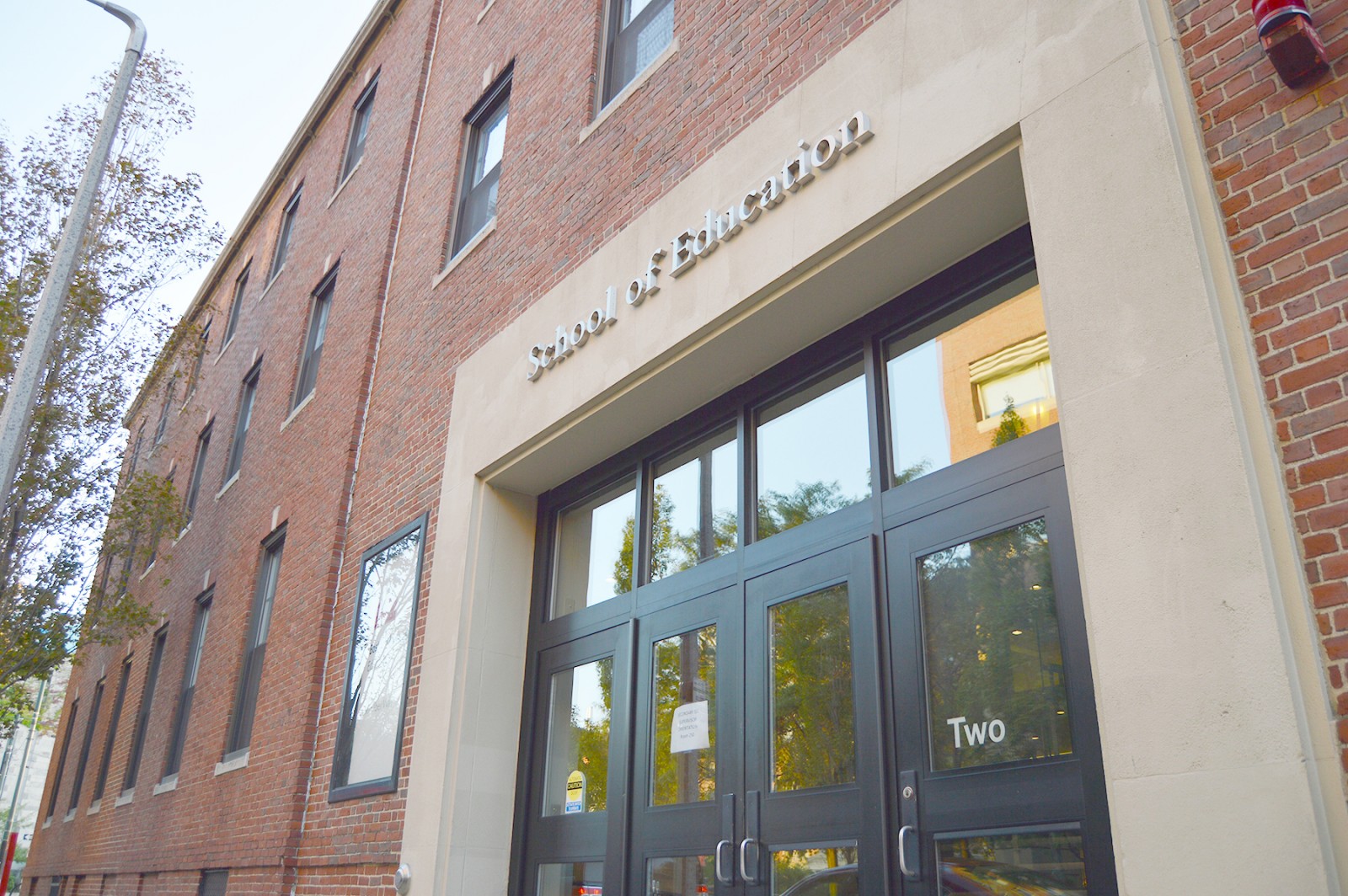
As part of an official partnership with America’s Promise Alliance this academic year, Boston University’s School of Education and the Center for Promise, America’s Promise’s research institute, will release a study this month that will reflect their joint effort to make a positive impact on the country’s youth.
The partnership emphasizes finding the solution to some young people’s failure to graduate despite historic advances in nationwide graduation rates, according an Aug. 13 release. Focused on learning how young people can achieve better outcomes through an engaging educational experience, the collaboration opens up future research opportunities for the BU community, the release stated.
The Center for Promise’s executive director Jonathan Zaff said the institute will strive to turn its studies’ results into action.
“The center was created to understand how all young people in America have the opportunity to thrive educationally, socially and emotionally,” Zaff, who is also a professor in SED, said. “The School of Education is uniquely qualified to be able to help us reach that goal. Our hope is that we provide opportunities for students to have high quality research experiences, [and] what we hope to accomplish with the faculty and administration is to hopefully be a high-quality asset that can be promoted by BU.”
The joint report is scheduled to be released on Sept. 16, Zaff said.
“The report that we did was on the role of social support in the lives of young people who have graduated, with the purpose to understand how relationship can be leveraged in educational experience [to decrease dropouts],” he said.
The research center aims to understand the power of relationships in fostering youths’ potential success. Community initiatives that promote positive youth development as well as reconnecting disconnected youth and establishing youth engagement are some of the main initiatives to determine how influential social support is, the release stated.
By moving to SED, the Center for Promise carries with it six full-time staff members, including Zaff, associate director Marissa Cole, research scientists Elizabeth Pufall Jones and Alice Donlan, youth engagement specialist Craig McClay and youth engagement facilitator and analyst Melissa Maharaj.
Scott Solberg, SED’s associate dean for research, said that Center for Promise’s members have the ability to work directly with BU’s students, and faculty members can also work with the center’s resources.
“[Zaff] is going to expand the mission that the School of Education has around campus. The BU community as a whole is made up of faculties who are doing their own research, so he’s going to be complementary to a lot of things going on,” Solberg said. “Being connected with us, it provides that sense of authenticity as well as credibility to the work that [Center for Promise is] doing.”
Solberg cited the Center of Promise’s previous study called “Don’t Call Them Dropouts” to demonstrate the importance of this collaboration in attempting to provide education to all students nationwide.
“A part of where BU is as a school of education is, how do we redesign the education system to make sure it reaches every child?” he said. “The [study’s] data says that these kids want to learn if we can design a system that can be flexible enough to the challenges that they have emotionally and maybe financially.”
Several BU students see the partnership as a doorway to opportunities and a medium through which to spread awareness of the dropout rate and the need for mental and social support throughout students’ academic careers.
Marina Alberti, a senior in SED, said it is important for educators to be the students’ “rock,” giving guidance and security to prevent students from failing to graduate.
“The dropout rate is so high, but so is the graduation rate, so we need to look at the reason they’re dropping out,” she said. “Since I’m going to be a teacher, I definitely want to look into [the partnership] and see what I can do to become a part of this.”
Jae Yoon Bae, a freshman in the College of Arts and Sciences, said that he expects big opportunities and collaborations from BU, thinking they are beneficial for students to take part in.
“[The partnership] gives BU a really good reputation and it’s another chance for us to get involved and better the community. In the future, I would definitely go into this kind of social and educational research,” he said.
Sargent College of Health and Rehabilitation Sciences senior Avion Cummings said she seldom hears of the university’s research and appreciates that this partnership not merely for the “glorification” of BU.
“We’re all very privileged to be at BU and we may not be aware of what other students are facing,” she said. “We have a place of power to make sure that other people are also getting education. So students should be involved and I’m sure they’re interested.”




















































































































